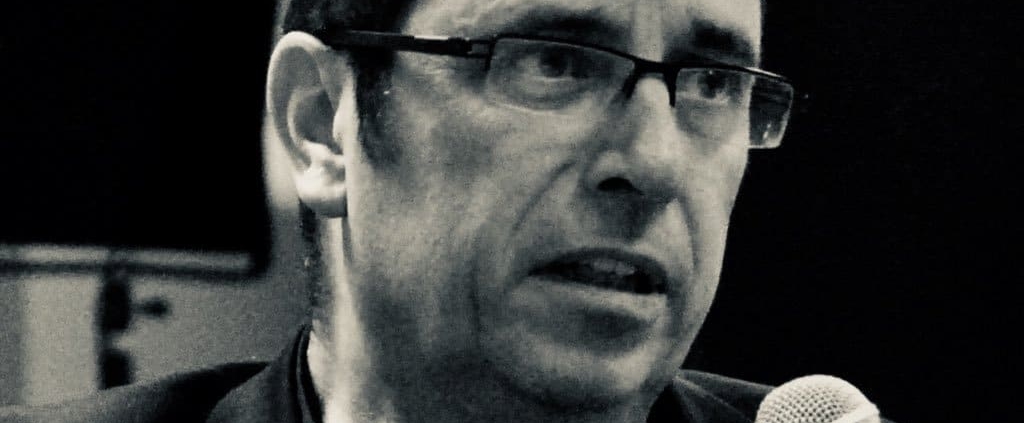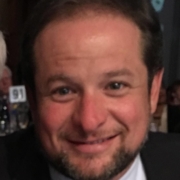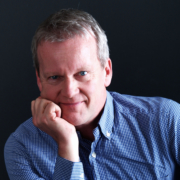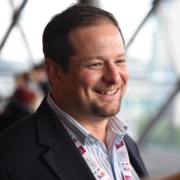In the second installment of our focus on the big issues facing education unions, we focus on union renewal.
My guest today is Howard Stevenson, Professor of educational leadership and policy studies at the University of Nottingham. He has researched teacher trade unions around the world to try and understand the best way to revive the power of unions. In our conversation, he talks about his findings and contextualizes the state of education unions.
Citation: Howard, Stevenson, interview with Will Brehm, FreshEd, 167, podcast audio, August 12, 2019. https://www.freshedpodcast.com/howardstevenson/
Transcript, Translation, Resources:
Will Brehm 1:09
Howard Stevenson, welcome to FreshEd.
Howard Stevenson 1:11
Thank you. Pleased to be here.
Will Brehm 1:12
So, can you give me just a quick overview of the state of unions today, as you see them -specifically teacher unions?
Howard Stevenson 1:20
Okay, so teachers have high levels of union membership almost everywhere in the world. Where there are teachers and unions, you can expect the majority of teachers to be in unions. If you look at the sort of industrial landscape in different countries, education workers are almost always amongst the most highly unionized. People use the phrase “union density”, in education union density is often amongst the highest you would find anywhere in the economy. With all the changes that there have been to unions over recent years -changes in the industrialization, deindustrialization massive impact on some of the manufacturing unions- education unions have been more robust in that sense. Membership levels have tended to hold up. So, in some senses, they look like healthy organizations.
Will Brehm 2:20
And why do so many people join teacher unions? Why is the density so high in this profession?
Howard Stevenson 2:26
I think the principal reason particularly for teachers -and you know, we have to sometimes distinguish between people who work in different sectors, like higher education, and vocational education, and of course, many unions represent teachers and other education support workers- but, for example, amongst teachers often looks different in different places. But there’s a strong relationship between being a member of your union and also having a sort of professional voice. So, some unions grew out of being professional associations. And, you know, teaching is an occupation where people feel the need to be strongly professionally connected. But also, to have support for when they may experience problems. I mean, it’s a difficult and demanding job and teachers are exposed to some risks. So that sort of notion of it being very important to have that support, and the professional connections, you put those two things together. And that’s, I think, what would often historically account for these high levels of union membership amongst teachers.
Will Brehm 3:35
Yeah. Sometimes there’s a lot of negative stereotypes about unions and unions being problematic. So, has that sort of negative stereotype impacted the way in which unions function today?
Howard Stevenson 3:48
There is no doubt that there is a narrative, presented by some very powerful interests in different parts of the world, that teaching unions. And if we’re talking about education in particular, but it is the unions that are the obstacle to reform. That we need to change, we constantly need to be improving, and that unions are the obstacle to this. Now, I take the view that that’s a deliberately promoted discourse, because actually, there’s an objective, often amongst those people to do particular things in terms of education policy, to which unions are opposed.
Will Brehm 4:30
Such as?
Howard Stevenson 4:31
Well, if you take the ability to transfer public education into private hands to open up the possibility of making profit from education, the privatization of public schooling. There are huge amounts of public money in education. There are big corporations who want part of that money. Well, in order to do that, they have to sort of dismantle the public education system. Unions are an obstacle to that. So, one of the consequences of that is that there’s this sort of narrative often promoted that unions are opposed to change. I don’t think unions are opposed to change at all. But they’re quite legitimately opposed some of the changes that are being promoted in our education systems in different parts of the world, and which are deeply damaging to public education. I think this is recognized by many public bodies, that actually, if you want to do real, meaningful, positive change, then you need to work with people. And actually, you work with the organizations that represent their collective interest because that’s the way in a sense to win support for the changes that you want. So, you know, like many of these issues, these things are hugely politically, in a sense contested. It’s not always framed in that way. So, we just get a very crude, you know, “the unions are now blocking this, unions are blocking that”. And of course, that suits those people who really want to undermine unions as the collective voice of teachers. Because actually what they want to do, are make changes to the education system that are in their interest, but not necessarily in the interest of the students who attend those public schools, for example.
Will Brehm 6:25
Right. So, it seems as if what we’re talking about is a very classic example of capital versus labor. And a lot of these sort of, historically, we’ve read about it, and it might have gone off from being so commonly spoken about, but in the service industry of teachers, but there’s also care workers that you see these sort of very classic interests of capital trying to push out the voice of labor to marginalize labor. And sometimes that’s how I sometimes see the fight of teacher unions even if it’s not necessarily the common narrative that is presented.
Howard Stevenson 7:02
So traditionally, that sort of capital versus labor discourse is not actually the way that people have talked about teachers and teacher unions and those relationships. I think it is what underpins those relationships. And actually, now, we are beginning to see that more clearly. Because actually, if you look at those big trends in education, which I think are towards privatization, in terms of private companies being responsible for more and more of the public education system -I mean, it’s very complex the way it plays out but that’s a sort of phenomena. The linked notion of making even those organizations which are technically in the public sector, behave like the commercial organizations working in the private sector. So, in different parts of the world, we might call them “charter schools”, or we might call them “academy schools”. Whatever it is, these are organizations that are, in a sense, being encouraged to behave as business organizations. And the people who lead them, in a sense, have the same imperatives. They want to get as much as they can out of their workforce. And they want to do it for the least possible cost. Because you know, if they can drive the cost down, then maybe they can do other things with the money that they save. So, if you’re a teacher or an education worker in those establishments, actually, what you experience is an employer who wants you to really work harder, be more productive, generate greater output –
Will Brehm 8:39
-and get paid less.
Howard Stevenson 8:40
That’s not the language of education. But of course, when we think about standardized testing, what is that, other than actually a way of sort of measuring the quantity and quality of the output? The employer wants to drive that up, and wants to do it, really, for the least possible cost. And to an education worker, that’s the classic situation that makes them actually no different to the factory worker or the train driver or whatever. Yeah, it’s an employment relationship. And actually, it’s underpinned by an exploitative relationship which is why unions need to have that sort of collective voice to be able to represent teachers and education workers interest.
Will Brehm 9:25
So basically, I mean, you’re saying, in short, that we should be quite skeptical when we see Pearson’s proposing a particular sort of reform, or Microsoft and Bill Gates proposing a particular set of reforms -that the initial assumption should be skeptical.
Howard Stevenson 9:42
These are business organizations. They exist to make profit, that is what they exist to do. They’ll say that they exist to provide a service, but actually, that sort of core motivation is the profit motive. And, you know, if you’re a tech company, I don’t doubt that you’re looking at all sorts of ways that you can replace labor with technology. That’s a sort of classic Taylorist notion of production. If you can cheapen the labor process, if you can find a way of making labor costs lower. And of course, in what we might call the service sector industries, labor costs are always a high proportion of the total costs. So, the attraction of driving those costs down, if actually, what you want to do is to make a profit for your tech company. Or if you’re the private owner of a private school, you want to drive the cost down to increase your profits, then technology might look like it offers some sort of superficial answer. I think there’s enormous risks from that. Huge things that we should be concerned about. But those pressures are there. They’re going to be there in the system. Teachers experience them now and I think that’s going to intensify. And in a sense, part of what I’ve been arguing about union renewal, is that the threats to teachers, the challenges to teachers, the pressures that they face, are intensifying. They’re getting greater and greater. You know, that drive to lower costs, drive up output, the threats potentially from technology, and all of these things. Technology can be marvelous but it’s a significant threat, I think, in the education system if used wrongly or introduced for the wrong reason.
Will Brehm 11:46
Right, technology for what end?
Howard Stevenson 11:48
Yeah, absolutely. And so, these challenges to teachers and to educators are increasing. And in a sense, unions have to be able to respond to them. But they only have limited resources. So, in a sense, the dilemma at the moment is that the demands on teachers are increasing, the pressures on teachers are increasing, therefore, the demands and pressures on unions to respond are increasing, but they only have limited resources.
Will Brehm 12:14
So, what can they do? How can unions begin to renew, and revive, and actually protect and promote the interests of teachers and students?
Howard Stevenson 12:24
So, unions have to look to find the resource that, in a sense, can help them respond to that growing pressure. And my argument is that that resource is in the union already and its members. So, what unions need to do is find new ways to involve, engage, connect, draw in members into the organization so that they act collectively. Because, renewal is the rediscovery of the basic trade union principle of workers working together to prosecute their interest and, in a sense, I think the imperative to sort of rediscover that is now much greater than it’s ever been. Because of the way those challenges are developing. So, it sort of compels unions, I think, to rethink how they work and how they organize in order to make sure that they are not drawing on their members in a sort of transactional sort of sense. But it’s rediscovering the notion that education workers need to act together in order to be able to push back effectively against some of these challenges. And to then be able to sort of frame policy debates much more positively for themselves.
Will Brehm 13:42
So, what would that actually look like, say, in a school? Like what practical things could a union do for a specific school and to renew and revive unions themselves?
Howard Stevenson 13:54
Right. So, I think there’s sort of two notions here. The danger is that we talk about renewal as almost purely a sort of technical process, you know, do a bit more of this, do a bit more of that, right?
Will Brehm 14:04
Yeah.
Howard Stevenson 14:05
People will get involved if they see the union making a difference. So, there’s two things, the union has to make a difference on issues that matter to teachers, and the union has to give people a way in to participate in that process. So, the example of a school I think, is an interesting example because part of what I’ve been arguing in the work I’ve been doing more recently, is that they are key to union renewal lies in as it were reinvigorating union presence in the workplace. Because it’s in my workplace, that most of the decisions that really affect my work are made, right. Now, of course, some of the big ticket issues like pay, pensions, may well be decided at national level, right. A lot of decisions are made in my own workplace. And, you know, if I feel that those decisions are not ones that I agree with, do I have the capacity to challenge those decisions? Do I have the ability to organize my work in a way that as a professional, I think is most appropriate? And I think part of this challenge for teachers currently, is that less and less, is it the case that people feel that they have that autonomy in their work. And so, what the union can do is get people to draw together, identify what the issues are, and collectively raise those concerns, hopefully have them addressed. But if not, think about what else is it that we do. But by organizing at that level, at that sort of workplace level, where people then see teachers and education workers see the union as the vehicle to make a difference that they want in their working lives. And that then becomes making the union sort of something live in the workplace. What that requires is some active visible union presence.
Will Brehm 16:11
Like among the staff of a particular school?
Howard Stevenson 16:15
And of course, in many countries, but by no means all, but in many countries, there is a tradition of having, we would call them a union rep in your school, but somebody who is an ordinary union member to use that phrase, an ordinary member of staff. But they are the representative of their colleagues on union issues in the school. And in the work, I’ve been doing, and more recently, with a colleague of mine, Emily Winship, we identified that actually where that person exists, there’s a very clear relationship to a much, sort of stronger connection to the union amongst union members. So, where you have that workplace presence, where that workplace rep exists, where ideally, that person has the confidence and capacity to actively raise issues, then that makes a real difference to how people in workplaces see, feel, and experience the union. It becomes sort of much easier to them feel like you belong to the union. And of course, when you do that, then actually when you want to take, for example, action on the big issues like pay, it becomes easier because people feel connected, they belong, they feel part of the union, they understand that notion of taking collective action to win things.
Will Brehm 17:43
Not some abstract concept, it’s in the everyday life.
Howard Stevenson 17:46
And that’s absolutely the point. We have to sort of make this real in the workplace. So that actually, you know, being a member of the union is a key sort of part of my professional identity.
Will Brehm 17:59
Not just a newsletter that you get in your email, or, you know, you see the President on the TV.
Howard Stevenson 18:04
Yeah. And what our research shows is that those sort of union figures are not really known by the members. But if there’s somebody in their workplace, it’s their colleague, they teach down their corridor, you know, that makes a world of difference.
Will Brehm 18:20
It’s like mundane unionism or something so.
Howard Stevenson 18:24
But where the union can really make a difference
Will Brehm 18:25
Right, exactly, and that makes sense.
Howard Stevenson 18:27
So, my argument to some of the unions I’ve been working with, is, what our research shows is that that person existing is the sort of key determinant in whether the wider membership feel that they belong to the union, feel engaged, feel connected, where that person exists. And the point is, you know, unions can influence that. They can recruit more of these people, they can support them, they can develop them, you know, they can help them to be sort of more effective in that representational role. And I think that’s the sort of key priority for unions is to build up the union at that workplace level. And it looks very different in different sectors. You know, I’ve worked in schools, I’ve worked in universities,
Will Brehm 19:17
Different contexts, different countries.
Howard Stevenson 19:20
There are some countries where that sort of concept is not one that they would sort of recognize. But the principle I think, still fundamentally applies. And I will always remember being somewhere deep in Nairobi doing some work with their Kenyan teacher’s union, KNUT, and, you know, what the person said to me was, you know, we recognized, we had to take the union into the staff room. You know, we understood, they’ve been involved in a big industrial action campaign and there was a sort of lot of high level pronouncements about things. What they learned from that dispute, was the need to take the union into the staff room.
Will Brehm 20:02
It’s a nice way to think about it.
Howard Stevenson 20:04
And, you know, whatever that looks like in different places, I think that principle is actually really important. What’s the fundamental issue that unions are involved in? It’s about work. If unions are about work, and I can’t see the union in my workplace, there’s a disconnect, and that’s a really critical issue to address, I think.
Will Brehm 20:30
And we started this conversation talking about some of these negative narratives that prevail when it comes to unions and teacher unions. And they are being perpetuated by particular interests, as we’ve talked about, but how do we create new narratives, different narratives, a different discourse to even see unions that then can address issues that actually perhaps matter more?
Howard Stevenson 20:53
Right. So, in some of the work that I’ve done for Education International, one of the things that we were arguing is the need to sort of build the union at that most basic level in their workplace. But the other thing we were arguing is that what unions also need to do is almost at the completely opposite end, be working at a very high level to be shaping debates about education policy, more widely, because of course, the sort of policy solutions that we get exist within a sort of set of parameters, a set of discourses, if you like, within where problems are defined in particular ways and then the solutions that are generated sit within those problems. Then sometimes those problems are defined in ways that we wouldn’t agree with at all. But of course, there are very powerful interests that promote some of those narratives. Stephen Ball used the phrase, “the discourse of derision” to describe the sort of drip drip, media coverage, political speech, which basically is saying, public education is broken, it has to be fixed, public is bad, private is good, what we need is these sort of radical market solutions. So, this is what we sort of mean by this discourse and this narrative. And, of course, you know, there are powerful interests able to promote these, the media is the obvious example but there are others as well. I think one of the problems that we face currently is that the spaces to represent counter narratives are often actually being undermined. So, I work in the UK, teacher education has been progressively moved more towards a sort of school-based model and away from universities. Universities are still involved but the sorts of teacher education programs available today look very different to ones in the past. And one of the consequences, one of the changes that we see, is there is much less discussion about what I think are sort of the big questions in education. There’s much less discussion about the history of education, there’s much less discussion about the philosophy of education, there’s much more about the sort of technical questions, how do I manage this classroom. Now, how you manage a classroom is really, really important, right now. I have been a teacher; I’m not underestimated for one minute the importance of those issues. But the danger is that we reduce the training of teachers to a very sort of a technical process, which actually has to be located in a wider understanding of what education is for, its purposes and the very different sort of perspectives that we have on these issues.
Will Brehm 23:23
I mean, the philosophy of education -I mean, that idea of the value of education- is so deeply debated, even if it might be the predominant way of seeing it as for a future job. But really, there’s all sorts of ways to think about the value of education, if you don’t have that grounding and philosophy, you’re not talking about it.
Howard Stevenson 23:39
So, I think, actually, whether this sounds conspiratorial, or whatever, but there’s been a deliberate, closing down of the spaces in which those sorts of discussions are held. And people training to be teachers, for example, are exposed to less of those sorts of debates. And there’s a sort of just, you know, get on with the job, rather than ask big questions about why you’re doing the job in the way that you’re doing it. And that’s the point I’m making about the sort of narrative framing because actually, you know, if the only issue that you’re being allowed to discuss is how best do I meet the requirements of the ministry inspectors then it becomes a very technical question about how to do this or how to do that. And, of course, what you’re not doing at all is asking wider questions about what is education for, who benefits from the education that we have, who is being badly served by it, what’s the impact of what we do on the most disadvantaged communities, for example, most vulnerable people in society, is education reducing these inequalities, or actually, is education increasing them? Because it can do and often we don’t really open these things up to proper debate? I think the spaces for those debates are actually being deliberately closed down. So, I think unions need to be shifting those debates but also need to recognize that they are a key space to open those discussions up.
Will Brehm 25:16
Right? Reframe, ask new questions, debate.
Howard Stevenson 25:19
Because they are independent, democratic, collective organizations. They’re not open to sort of co-option in a way that other spaces where these discussions were taking place are. So, you know, I am working in a university I’ve said, you know, there’s a set of regulations about how that works, which means that, you know, those courses now look very different to what they did before. We don’t have that autonomy because there’s an inspection system that says how we must train teachers and that’s what those courses have to look like. Unions have the independence and the space to be able to develop these counter narratives. So, I think unions have a particular responsibility to lead the discussions and the debates about the importance of public education that is about developing critical citizens for a democratic society, and which is committed to social justice. Sort of fundamental questions about values. Now, not all unions would necessarily see themselves as engaged in that sort of work. I think it’s absolutely the work that they need to be involved in because if they’re not doing it, it’s often really difficult to see where that takes place.
Will Brehm 26:41
And then it gets co-opted by all these other interests.
Howard Stevenson 26:44
And you know, they are enormously powerful. They are enormously powerful. And then when the debate is framed in particular ways, it becomes really difficult to challenge it. So, you know, reframing these narratives is not easy work at all. It’s sort of long, and it’s slow. But it’s absolutely essential work. And, you know, I said earlier on, this was the sort of high level stuff, but to sort of almost sort of bring it back down to that, where we started talking about the workplace representation. I think, actually, a really important part of this is it’s about recognizing the importance of educating people. And so, you know, we need to educate the wider public, but there’s also an important job unions needs to do about educating their own members. And its education unions, and education workers, education is what we do, we ought to be really good at it. So, when I’m thinking increasingly about union renewal, I’m recognizing more and more, I think the importance of that sort of educative work within unions amongst our own members. To both, give them the confidence to speak back, but also the understanding of the issues, which allows people to see where the current injustices are, and how actually things might look different.
Will Brehm 28:09
Well, Howard Stevenson, thank you so much for joining FreshEd. I really appreciate talking today.
Howard Stevenson 28:14
Thank you very much. It’s been a pleasure.
Union Renewal









